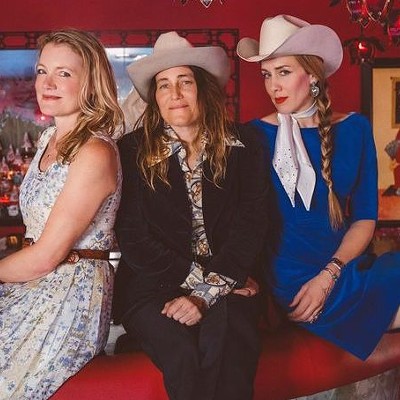Miles Davis, Sketches of Spain: "He can read my mind, and I can read his," the Dark Magus once said of conductor/arranger Gil Evans, and that's evident on their third and best collaboration here. A Spanish/Andalusian feel permeates, from the 16-plus-minute, fully-stringed, castanet-fueled centerpiece "Concierto de Aranjuez (Adagio)" to the suspenseful "The Pan Piper" and the peppy military/bullfighting cadence of "Saeta." Haunting, sultry, mournful and contemplative all apply as Davis comes out of the bebop/cool jazz schools into his own distinctive style. Disc 2 includes "Maids of Cadiz," an earlier Evans/Davis effort in a similar Spanish-sounding vein, several alternate takes of "Concierto" and "Song of Our Country," and a boppin' live recording of "Teo." All are previously released. Sketches of Spain is not as crucial to the home collection as Birth of the Cool, Kind of Blue, or Bitches Brew, but it's a travelogue worth taking whether or not you own a red cape. Charles Mingus, Mingus Ah Um: The best release of the three. Like the similarly mercurial Davis, bassman Mingus had a wildly productive 1959, recording a live disc and laying down sessions for three LPs, including Mingus Dynasty, with both presented here. Not a straight jazz record, Ah Um features deep dips into gospel ("Better Git It In Your Soul,"), blues ("Boogie Stomp Shuffle") and Dixieland ("Pussy Cat Dues") in addition to tributes to Mingus heroes like Lester Young (the seminal "Goodbye Pork Pie Hat"), Duke Ellington, and Jelly Roll Morton. Plus "Fables of Faubus," his "tribute" to the segregationist governor of Arkansas, though here it's in original instrumental form rather than sporting the controversial lyrics added later. "Jazz...cannot be held down to written parts to be played with a feeling that goes only with blowing free," Mingus once said. What's interesting about him as a bandleader (especially with his Ah Um sextet) is how little he puts his own bass at the forefront of the sound, preferring to complement the horns. It's arguably his best record. Disc 2 includes some alternate tracks and all of Mingus Dynasty. More formal, overreaching and with lower-quality material than Ah Um, it still shows ambitions in tracks like "Slop" and "Gunslinging Bird." Dave Brubeck Quartet, Time Out: "I hear you're mad about BRU-beck," Donald Fagen croons in his sly poke at early '60s Cold War culture in "The New Frontier." And indeed, plenty of suburban living rooms and college dorms were blaring the pianist's Time Out along with other West Coast (and white) "cool jazz" players like Chet Baker, Stan Getz and Gerry Mulligan. This record retains its light, breezy sound decades later, whether in the raining piano notes of "Blue Rondo à la Turk" or the sweet 'n snappy sound of Brubeck's signature tune, "Take Five" (actually written by longtime saxman/musical soulmate Paul Desmond). Time Out remains a platter of choice for cocktail hour, and Brubeck's interesting and shifting time signatures offer layers not always noticed at first. Disc 2 shows a live (and livelier) band in unreleased performances from several early-'60s Newport Jazz Festivals. Highlights include uptempo takes on "St. Louis Blues," "Since Love Had Its Way" and "Pennies from Heaven," along with extended versions of "Turk" and "Five." A bonus DVD includes an interview with the still-spry 88-year-old Brubeck, vintage performance footage, a photo gallery, and interactive piano lesson. In addition to thsee discs, those 12 months also saw the release of seminal efforts by John Coltrane (Giant Steps), Duke Ellington (Anatomy of a Murder), Ornette Coleman (The Shape of Jazz to Come), the Bill Evans Trio (Portraits in Jazz), and Ella Fitzgerald (Sings the George and Ira Gershwin Song Book). So, was 1959 Jazz's Greatest Year? Hell, given the evidence above - sorry, 1967 - it might have been music's greatest year.
Support Us
Houston's independent source of
local news and culture
account
- Welcome,
Insider - Login
- My Account
- My Newsletters
- Contribute
- Contact Us
- Sign out
[
{
"name": "Related Stories / Support Us Combo",
"component": "11591218",
"insertPoint": "4",
"requiredCountToDisplay": "4"
},{
"name": "Air - Billboard - Inline Content",
"component": "11591214",
"insertPoint": "2/3",
"requiredCountToDisplay": "7"
},{
"name": "R1 - Beta - Mobile Only",
"component": "12287027",
"insertPoint": "8",
"requiredCountToDisplay": "8"
},{
"name": "Air - MediumRectangle - Inline Content - Mobile Display Size 2",
"component": "11591215",
"insertPoint": "12",
"requiredCountToDisplay": "12"
},{
"name": "Air - MediumRectangle - Inline Content - Mobile Display Size 2",
"component": "11591215",
"insertPoint": "4th",
"startingPoint": "16",
"requiredCountToDisplay": "12"
}
,{
"name": "RevContent - In Article",
"component": "12527128",
"insertPoint": "3/5",
"requiredCountToDisplay": "5"
}
]
It was the year a jungle rebel named Fidel Castro took over Cuba, Barbie made her debut on toy-store shelves, and Hawaii became the 50th U.S. state. But was it also the apex of quality and creativity in jazz? That's the theory posited by the folks at Columbia Records, who have given their usual fine "Legacy Edition" treatment to four seminal records recorded and/or released in 1959.
First out of the gate was Miles Davis' Kind of Blue. Now comes three more re-releases with plenty of bonus/unreleased/alternate takes, extensive liner notes, and even PDF booklets - though you couldn't find three more disparate musicians in Miles Davis, Charles Mingus, and Dave Brubeck.
A rundown:
KEEP THE HOUSTON PRESS FREE...
Since we started the Houston Press, it has been defined as the free, independent voice of Houston, and we'd like to keep it that way. With local media under siege, it's more important than ever for us to rally support behind funding our local journalism. You can help by participating in our "I Support" program, allowing us to keep offering readers access to our incisive coverage of local news, food and culture with no paywalls.
Bob Ruggiero has been writing about music, books, visual arts and entertainment for the Houston Press since 1997, with an emphasis on classic rock. He used to have an incredible and luxurious mullet in college as well. He is the author of the band biography Slippin’ Out of Darkness: The Story of WAR.
Contact:
Bob Ruggiero
Trending Music
- How Much Longer Can Classic Rock Rule the Roost?
- Houston Concert Watch 4/24: Rolling Stones, Bad Bunny and More
- Top 10 Butt-Rock Bands of All Time
-
Sponsored Content From: [%sponsoredBy%]
[%title%]

Don't Miss Out
SIGN UP for the latest
Music
news, free stuff and more!
Become a member to support the independent voice of Houston
and help keep the future of the Houston Press FREE
Use of this website constitutes acceptance of our
terms of use,
our cookies policy, and our
privacy policy
The Houston Press may earn a portion of sales from products & services purchased through links on our site from our
affiliate partners.
©2024
Houston Press, LP. All rights reserved.





